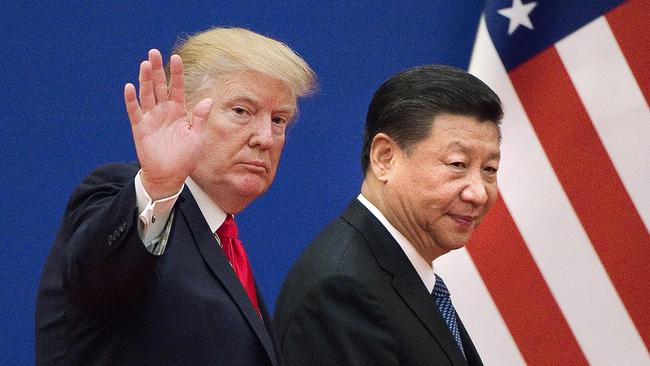Last stop before doomsday for US-China trade relations

On January 28, Chinese Vice-Premier Liu He landed in Washington, ready for talks to calm the trade war between the US and China. Instead he was met by a geopolitical tempest. That day the US Attorney-General charged Huawei, one of China’s biggest firms, with 23 crimes, including sanctions-busting, stealing corporate secrets and obstructing justice. US officials also made clear that they view Huawei as a threat to national security, since it builds the telecoms networks that underpin modern societies. Some 170 countries that use Huawei must now decide whether doing business with it is safe.
That decision is hard, because Huawei has more than one guise. The first is benign: it is China’s most successful global firm. Last year it booked $US110 billion of sales and shipped 200 million smartphones. It has built 1500 networks, reaching a third of the planet’s population. Huawei’s second face, prosecutors allege, is that of a grubby enterprise that breaks laws for profit. They say it offered bonuses to staff who stole intellectual property and that Meng Wanzhou, its finance chief and the daughter of its founder, misled banks about doing business in Iran. She was arrested in Canada in December and courts there are considering a US extradition request. China says the allegations are a “smear”.
Huawei’s third identity is the most disturbing and the hardest to pin down. It could be a vehicle for Chinese spying or even, in a time of war, sabotage. Rumours of this have circulated for years without any public evidence (including this week), but it makes sense to be wary. Huawei has a high market share in new 5G networks. The networks’ dispersed design makes them hard to monitor. And China’s leaders are tightening their grip on business, including firms such as Huawei in which the state has no stake. This influence has been formalised in the National Intelligence Law of 2017, which requires firms to work with China’s one-party state.
The nuclear option would be to ban Huawei. Since 2012 it has, in effect, been prevented from selling equipment in the US. Australia recently prohibited Huawei’s 5G gear. Japan has tightened its rules. The US could probably put Huawei out of business if it wanted to, by banning US firms from supplying it with crucial components and by cutting it off from the global banking system.
Such aggressive action would come with huge costs for all. The economic ones are obvious: supply chains would be wrecked, at least 180,000 jobs would go, mainly in China, and customers would have less choice. On January 29, Australian operator TPG, deprived of Huawei gear, abandoned plans for a new 5G network. But the greatest cost would be a splintering of the global trading system. The line between justice and trade negotiations has become blurred. US officials insist they are just enforcing the law, but Donald Trump has said Meng’s fate is a bargaining chip, and the Commerce Secretary and China hawk Wilbur Ross was present this week when the allegations against Huawei were announced. The exclusion of a firm on the say-so of US officials, without evidence, would set a dangerous precedent. The same logic would also justify the US banning all hardware made in China or keeping Chinese firms out of industries such as e-commerce. Might China be entitled to impose a similar ban on US firms?
Instead of spiralling into a cold war, leaders should create mechanisms and rules that favour trade by minimising mistrust. Both sides have a part to play. Host countries need to develop structures to monitor Huawei and to provide for a reasonable response if things go wrong. European leaders complain they have not been shown evidence of Huawei spying. The more credible and law-like America’s process is, the better. Britain has a board that allows spooks to review Huawei’s equipment. Germany has copied it and Singapore may follow. Governments can lower the risk by insisting on a diversity of suppliers. In a country with four networks, it would make sense if at least two were not built by Huawei.
For its part, China Inc needs to get serious about demonstrating it can be trusted. Huawei’s governance is a mixture of obfuscation and opacity. It should appoint foreign directors, recruit Western investors and set up subsidiaries overseas with their own boards and indigenous managers. Beijing, meanwhile, can complain that it is being treated unfairly, but if it really wants better treatment it should send a signal that it understands the anxieties it stirs up. The Huawei affair shows how President Xi Jinping’s growing authoritarianism is undermining China’s commercial interests abroad.


